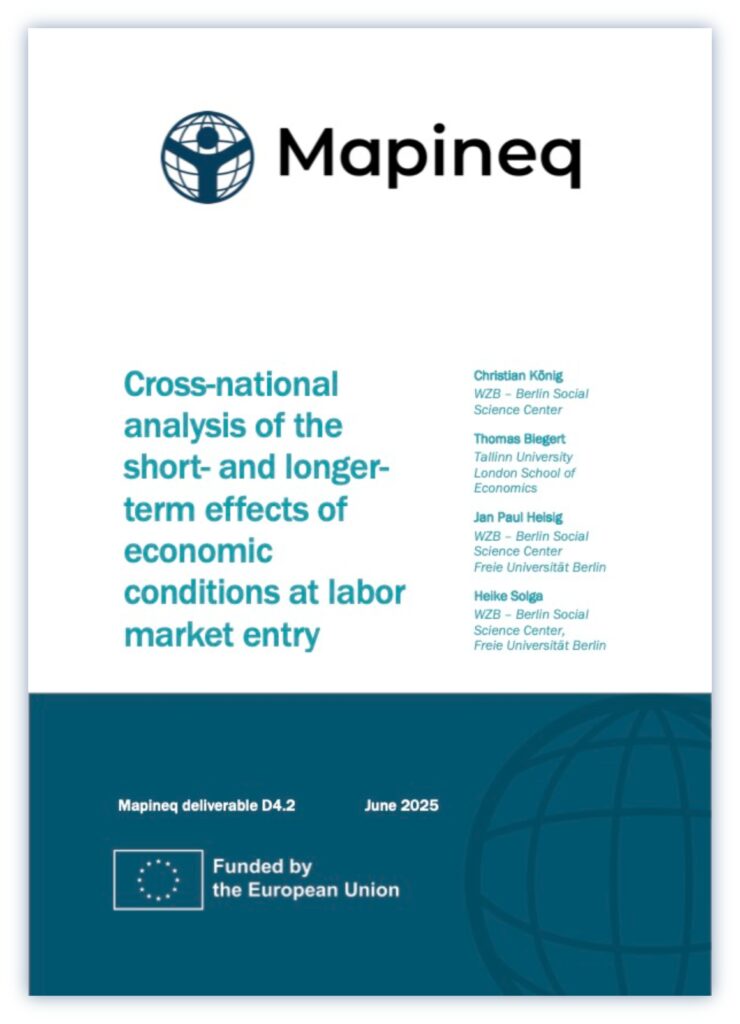Cross-national analysis of the short- and longer-term effects of economic conditions at labor market entry
This report uses European Union Labour Force Survey (EU-LFS) survey data to examine the longer-term impact of regional economic conditions at labor market entry on labor market exclusion (non-employment) and insecurity (temporary contracts and low-skilled jobs). The analyses are based on young adults who entered the labor market in Europe between 1994 and 2011. The focus is on whether poor economic conditions at entry increase the risk of scarring effects for these entry cohorts. To identify the effect of economic conditions at labor market entry, we exploit year-to-year variation in unemployment rates in European regions (NUTS1) and examine labor market outcomes 5 to 10 years later (i.e., between 1999 and 2021). We explore effect heterogeneity by gender and level of education and examine potential moderating effects of various labor market policies.
By Christian König, Thomas Biegert & Jan Paul Heisig and Heike Solga.

Higher risks of temporary employment when unemployment rates are higher at entry, especially for less-educated young adults.

Higher risk of long-term low-skilled employment in regions with higher public expenditure on PLMP, especially for less-educated young adults.

No evidence of adverse labor market effects of entering the labor market in poor economic conditions for tertiary-educated young adults.

